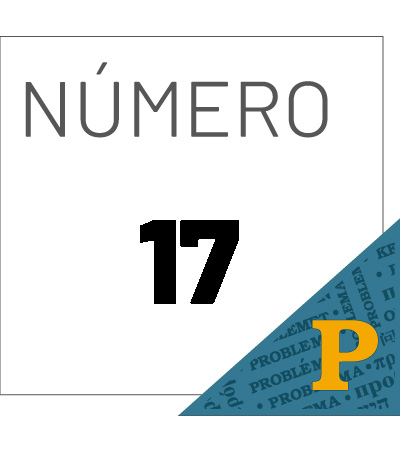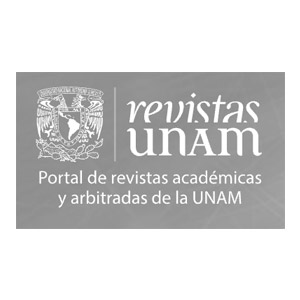Radical Republican Citizenship for a Mobile World
Los migrantes, invariable e inevitablemente, experimentan dominación bajo los conceptos, categorías e instituciones centrados en el Estado-nación que estructuran nuestro pensamiento político. En respuesta, necesitamos construir nuevas formas de ciudadanía, incluidas formas de pertenencia locales, regionales, transnacionales y supranacionales, acompañadas de un poder político significativo y democrático. Este artículo examina modelos alternativos, históricos y actuales, de organización política como posibles opciones viables a la democracia liberal centrada en el Estado. Comienzo esta tarea evaluando estos modelos desde la teoría republicana radical que fundamenta la no dominación en la participación activa e igualitaria de las personas sujetas al poder.
Tengo tres grandes objetivos: primero, romper la dicotomía nativo-migrante para resaltar los puntos en común y buscar solidaridades entre los migrantes y otros grupos marginados y oprimidos, incluidos los grupos indígenas. Segundo, busco despertar la imaginación política. Muchas personas no creen que existan alternativas viables a la democracia liberal centradas en el Estado-nación. En respuesta, debemos llamar la atención sobre las formas en que la hegemonía del Estado-nación es frágil y está fragmentada, así como las formas en que la soberanía es compleja y disputada. Lo más importante es que debemos considerar modelos alternativos para inspirarnos.En tercer lugar, identificar herramientas para evaluar la conveniencia de alternativas para construir nuevas formas de ciudadanía.
En lo que sigue, primero expondré por qué el modelo dominante de organización política centrado en el Estado-nación es incapaz de hacer justicia en el mundo de hoy o, de hecho, de abordar los peligros colectivos que enfrenta la humanidad. A continuación, ofrezco un esbozo de una visión republicana radical que proporciona una guía normativa a nuestro pensamiento sobre las instituciones alternativas. Termino usando esta visión de República radical para reflexionar sobre las posibilidades de guiar los esfuerzos para rehacer el mundo.
Detalles del artículo
Uso de licencias Creative Commons (CC)
Todos los textos publicados por Problema. Anuario de Filosofía y Teoría del Derecho sin excepción, se distribuyen amparados con la licencia CC BY-NC 4.0 Internacional, que permite a terceros utilizar lo publicado, siempre que mencionen la autoría del trabajo y la primera publicación en esta revista. No se permite utilizar el material con fines comerciales.
Derechos de autoras o autores
De acuerdo con la legislación vigente de derechos de autor Problema. Anuario de Filosofía y Teoría del Derecho reconoce y respeta el derecho moral de las autoras o autores, así como la titularidad del derecho patrimonial, el cual será transferido —de forma no exclusiva— a Problema para permitir su difusión legal en acceso abierto.
Autoras o autores pueden realizar otros acuerdos contractuales independientes y adicionales para la distribución no exclusiva de la versión del artículo publicado en Problema. Anuario de Filosofía y Teoría del Derecho (por ejemplo, incluirlo en un repositorio institucional o darlo a conocer en otros medios en papel o electrónicos), siempre que se indique clara y explícitamente que el trabajo se publicó por primera vez en Problema.
Para todo lo anterior, deben remitir la carta de transmisión de derechos patrimoniales de la primera publicación, debidamente requisitada y firmada por las autoras o autores. Este formato debe ser remitido en PDF a través de la plataforma OJS.
Derechos de lectoras o lectores
Con base en los principios de acceso abierto las lectoras o lectores de la revista tienen derecho a la libre lectura, impresión y distribución de los contenidos de Problema por cualquier medio, de manera inmediata a la publicación en línea de los contenidos. El único requisito para esto es que siempre se indique clara y explícitamente que el trabajo se publicó por primera vez en Problema. Anuario de Filosofía y Teoría del Derecho y se cite de manera correcta la fuente incluyendo el DOI correspondiente.
Consúltese https://creativecommons.org/licenses/by-nc/4.0/

Esta obra está bajo una licencia internacional Creative Commons Atribución-NoComercial 4.0.
Citas
Albahari, M. (2015). Crimes of Peace: Mediterranean Migrations at the World’s Deadliest Border. University of Pennsylvania Press.
Basch, L. G., Glick Schiller, N., & Szanton Blanc, C. (1994). Nations Unbound: Transnational Projects, Postcolonial Predicaments, and Deterritorialized Nation-States. Gordon and Breach.
Bauböck, R. (2018). “Democratic Inclusion”. In Rainer Bauböck (Ed.), Democratic Inclusion. Manchester University Press. https://doi.org/10.7765/9781526105257.00007
Baubock, R. & Orgad, L. (2020). Cities vs. States: Should Urban Citizenship be Emancipated from Nationality? SSRN Electronic Journal. https://doi.org/10.2139/ssrn.3630228
Bauder, H. (2012). Jus Domicile: In Pursuit of a Citizenship of Equality and Social Justice. Journal of International Political Theory, 8(1-2), 184-196. https://doi.org/10.3366/jipt.2012.0038
Beck, U. (2000). What Is Globalization? Polity Press.
Beck, U. (2006). Living in the World Risk Society: A Hobhouse Memorial Public Lecture given on Wednesday 15 February 2006 at the London School of Economics. Economy and Society, 35(3), 329-345. https://doi.org/10.1080/03085140600844902
Beck, U. (2007). The Cosmopolitan Condition: Why Methodological Nationalism Fails. Theory, Culture & Society, 24(7-8), 286-290. https://doi.org/10.1177/02632764070240072505
Bloemraad, I. (2022). Claiming Membership: Boundaries, Positionality, US Citizenship, and What It Means to Be American. Ethnic and Racial Studies, 45(6), 1011-1033. https://doi.org/10.1080/01419870.2021.1986225
Bohman, J. (2008). Nondomination and Transnational Democracy. In Cécile Laborde & John W. Maynor (Eds.), Republicanism and Political Theory, 190-216. Blackwell.
Casas-Cortes, M., Cobarrubias S. & Pickles J. (2015). Riding Routes and Itinerant Borders: Autonomy of Migration and Border Externalization. Antipode,47(4), 894-914. https://doi.org/10.1111/anti.12148
Chacón, J. M. (2021). Birth of a Nation: Race, Regulation, and the Rise of the Modern State. Cultural Dynamics, 33(3), 257-262. https://doi.org/10.1177/09213740211020924
Cohen, E. F. (2009). Semi-Citizenship in Democratic Politics. Cambridge University Press.
Crawford, K. (2021). Atlas of AI: Power, Politics, and the Planetary Costs of Artificial Intelligence. Yale University Press.
Crenshaw, K. W. (1988). Race, Reform, and Retrenchment: Transformation and Legitimation in Antidiscrimination Law. Harvard Law Review, 101(7), 1331-1387.
De Genova, N. (2010). The Deportation Regime: Sovereignty, Space, and the Freedom of Movement. In Nicholas de Genova & Nathalie Mae Peutz (Eds.), The Deportation Regime: Sovereignty, Space, and the Freedom of Movement (pp. 33-65). Duke University Press.
De Genova, N. (Ed.). (2017). The Borders of “Europe”: Autonomy of Migration, Tactics of Bordering. Duke University Press.
Fung, A, & Olin W. E. (2022). Deepening Democracy: Institutional Innovations in Empowered Participatory Governance. Transferred to digital print, 2003 [Im Kolophon: Milton Keynes: Lightning Source, 2011]. The Real Utopias Project 4. Verso, 2011.
Forestal, J. (2017). The Architecture of Political Spaces: Trolls, Digital Media, and Deweyan Democracy. American Political Science Review, 111(1), 149-161. https://doi.org/10.1017/S0003055416000666
García, A. S. (2021). Undocumented, Not Unengaged: Local Immigration Laws and the Shaping of Undocumented Mexicans’ Political Engagement. Social Forces, 99(4), 1658-1681. https://doi.org/10.1093/sf/soaa070
García Hernández, C. C. (2013). Creating Crimmigration. Brigham Young University Law Review, 1457–1516.
Getachew, A. (2019). Worldmaking after Empire: The Rise and Fall of Self-Determination. Princeton University Press.
Hoye, J. M. (2018, October). Migration, Membership, and Republican Liberty. Critical Review of International Social and Political Philosophy, 1-27. https://doi.org/10.1080/13698230.2018.1532228
Hoye, J. M. (2020). Sanctuary Cities and Republican Liberty. Politics & Society, 48(1), 67-97. https://doi.org/10.1177/0032329219892362
Isin, E. F. & Nielsen, G. M. (Eds.). (2008). Acts of Citizenship. Zed Books Ltd.; Palgrave Macmillan.
Johnson, K. R. (2000). The Case against Racial Profiling in Immigration Enforcement. Washington University Law Quarterly, 78(3), 675-736.
Jones, Reece. (2016). Violent Borders: Refugees and the Right to Move. Verso.
Kohn, M. (2022). Radical Republicanism and Solidarity. European Journal of Political Theory, 21(1), 25-46. https://doi.org/10.1177/1474885119881313
Krasner, Stephen D. (1999). Sovereignty: Organized Hypocrisy. Princeton University Press.
Laborde, C. (2010). Republicanism and Global Justice: A Sketch. European Journal of Political Theory, 9(1), 48-69. https://doi.org/10.1177/1474885109349404
Leipold, B., Karma, N. & White, S. (Eds.). (2020). Radical Republicanism: Recovering the Tradition’s Popular Heritage. Oxford University Press. https://doi.org/10.1093/oso/9780198796725.001.0001
Maas, W. (Ed.). (2013). Multilevel Citizenship. University of Pennsylvania Press.
Mamdani, M. (2020). Neither Settler nor Native: The Making and Unmaking of Permanent Minorities. The Belknap Press of Harvard University Press.
Mills, C. (2015). Race and Global Justice. In Barbara C., J. Buckinx, Jonathan Trejo-Mathys & Timothy Waligore (Eds.), Domination and Global Political Justice: Conceptual, Historical and Institutional Perspectives (pp. 181-205). Routledge.
Mongia, R. V. (2018). Indian Migration and Empire: A Colonial Genealogy of the Modern State. Duke University Press.
Muthu, S. (2003). Enlightenment against Empire. Princeton University Press.
Nail, T. (2015). The Figure of the Migrant. Stanford University Press.
Ochoa Espejo, P. (2020). On Borders: Territories, Legitimacy, and the Rights of Place. Oxford University Press.
Paik, A. N. (2020). Bans, Walls, Raids, Sanctuary: Understanding U. S. Immigration in the Twenty-First Century. University of California Press.
Pedroza, L. (2019). Citizenship beyond Nationality: Immigrants’ Right to Vote across the World. University of Pennsylvania Press.
Pettit, P. (1996). Freedom as Antipower. Ethics, 106(3), 576-604.
Pettit, P. (1997). Republicanism: A Theory of Freedom and Government. Clarendon Press; Oxford University Press.
Roediger, D. R. (2006). Working toward Whiteness: How America’s Immigrants Became White; the Strange Journey from Ellis Island to the Suburbs. Basic Books.
Rogers, M. L. (2020). Race, Domination, and Republicanism. In Danielle S. Allen & Rohini Somanathan (Eds.), Difference without Domination: Pursuing Justice in Diverse Democracies (pp. 59-89). The University of Chicago Press.
Sager, A. (2014). Political Rights, Republican Freedom, and Temporary Workers. Critical Review of International Social and Political Philosophy, 17(2), 189-211. https://doi.org/10.1080/13698230.2012.733586
Sager, A. (2016). Methodological Nationalism, Migration and Political Theory. Political Studies, 64(1), 42-59.
Sager, A. (2017). Immigration Enforcement and Domination: An Indirect Argument for Much More Open Borders. Political Research Quarterly, 70(1), 42-54. https://doi.org/10.1177/1065912916680036
Sager, A. (2018a). Toward a Cosmopolitan Ethics of Mobility: The Migrant’s-Eye View of the World. Springer Science+Business Media.
Sager, A. (2018b). Reclaiming Cosmopolitanism through Migrant Protests. In Tamara Caraus & Elena Paris (Eds.), Migration, Protest Movements and the Politics of Resistance. A Radical Political Philosophy of Cosmopolitanism (pp. 171-185). Routledge.
Sager, A. (2020). Against Borders: Why the World Needs Free Movement of People. Rowman & Littlefield International.
Sager, A. (2021). “Political Philosophy beyond Methodological Nationalism.” Philosophy Compass, January, phc3.12726. https://doi.org/10.1111/phc3.12726
Sassen, S. (2001). The Global City: New York, London, Tokyo (2nd ed.). Princeton University Press.
Schmid, L. (2022, February). Saving Migrants’ Basic Human Rights from Sovereign Rule. American Political Science Review, 1-14. https://doi.org/10.1017/S0003055422000028
Shachar, A. (2020). The Shifting Border: Legal Cartographies of Migration and Mobility; Ayelet Shachar in Dialogue. Manchester University Press.
Sharma, N. R. (2020). Home Rule: National Sovereignty and the Separation of Natives and Migrants. Duke University Press Books.
Skinner, Q. (2012). Liberty before Liberalism. Cambridge University Press.
Táíwò, O. O. (2022). Reconsidering Reparations: Worldmaking in the Case of Climate Crisis. Oxford University Press.
Thompson, M. J. (2019). The Radical Republican Structure of Marx’s Critique of Capitalist Society. Critique, 47(3), 391-409. https://doi.org/10.1080/03017605.2019.1642987
Vázquez, Y. (2015). Constructing Crimmigration: Latino Subordination in a “Post-Racial” World. Ohio State Law Journal, 599(3), 599-657.
Véliz, C. (2019). Online Masquerade: Redesigning the Internet for Free Speech Through the Use of Pseudonyms. Journal of Applied Philosophy, 36(4), 643-658. https://doi.org/10.1111/japp.12342
Vertovec, S. (2007). Super-Diversity and Its Implications. Ethnic and Racial Studies, 30(6), 1024-1054. https://doi.org/10.1080/01419870701599465
Wendt, A. (2003). Why a World State Is Inevitable. European Journal of International Relations, 9(4), 491-542. https://doi.org/10.1177/135406610394001
Wimmer, A. & Glick Schiller, N. (2003). Methodological Nationalism, the Social Sciences, and the Study of Migration: An Essay in Historical Epistemology. International Migration Review, 37(3), 576-610.
Wimmer, A. (2021, March). Worlds without Nation‐states: Five Scenarios for the Very Long Term. Nations and Nationalism, nana.12690. https://doi.org/10.1111/nana.12690
Wolfe, P. (2006). Settler Colonialism and the Elimination of the Native. Journal of Genocide Research, 8(4), 387-409. https://doi.org/10.1080/14623520601056240

























